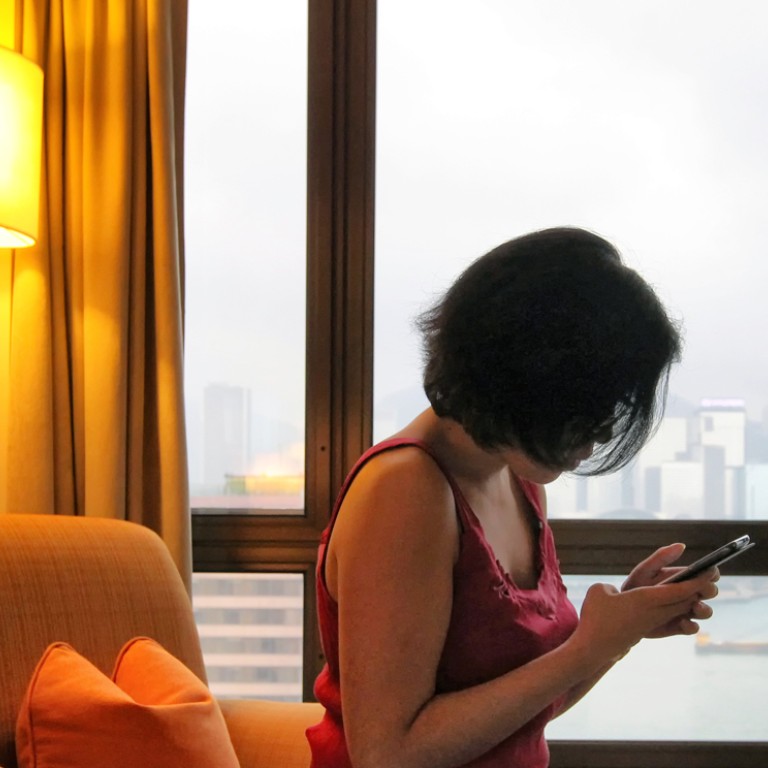
Consumers fume at misleading listings for Hong Kong's hotels
The internet has become the tool of choice for most people planning a visit to Hong Kong to reserve their accommodation, basing their decisions on photos, ratings and descriptions.
The internet has become the tool of choice for most people planning a visit to Hong Kong to reserve their accommodation, basing their decisions on photos, ratings and descriptions.
But a rise in complaints about hotels misrepresenting themselves online suggests consumers are fed up with the practice.
The Consumer Council has received 80 complaints against hotel owners this year to the end of August, including 11 cases alleging misleading sales practices. That's up from seven complaints about sales practices for all of last year, when the total number of complaints reached 117.
Tourism is a robust part of the city's economy, with more than 54 million people visiting last year and spending an estimated HK$343.1 billion, according to the Tourism Commission. That was fuelled largely by visitors from the mainland, who made up 75 per cent of total visitors.
But the annual growth in mainland tourists slowed last year to 16.71 per cent, from levels of around 25 per cent each year since visa laws were relaxed in 2009. And a reputation for misleading accommodation practices will not increase the city's competitiveness as a tourist destination in the region.
In one complaint, a family from Shanghai said they booked a hotel in Chungking Mansions but could not find it at the address stated online. Instead, they were directed to a location where the facilities did not match descriptions online. There was no reception desk or lift access, and the place smelled bad, the complaint said.
The family decided against staying in the hotel, which then refused to refund the HK$3,000 they had paid in advance, according to the complaint.
Similar cases can be found on comments left on hotel booking websites.
Having paid about HK$400 for a room, he gave the hotel a score of 3.3 out of 10. It is "not a hotel" but a flat, he wrote.
"Be careful, you're not really booking the hotel it says you're booking," wrote another user going by the name Alex. "You book this hotel, or one of many others, and they send you to a front desk on the 17th floor. Then they choose a room in a different hotel to give you. It has little to do with what you booked."
Consumer Council chief executive Gilly Wong Fung-han said travellers could ask for a refund when they were refused the lodging they booked. Travellers should also check whether the guest houses to which they are redirected are licensed, she added.
Under consumer protection laws, it is illegal to provide misleading descriptions of products or services.
That could apply to guest houses that misled travellers, Wong said. But enforcing those laws could pose a jurisdiction problem if websites to which misleading pictures were uploaded were based overseas.
One problem, said Michael Li Hon-shing, the executive director of the Federation of Hotel Owners, was inadequate regulation on how guest houses and hotels may advertise. He said basic guest houses shouldn't be allowed to call themselves hotels, which suggests a higher level of service.
"We invested billions of dollars to build a hotel. It wouldn't make sense if any place could call itself a hotel," he said.
But the law may soon change.
From July to August, the Home Affairs Department conducted a public consultation on changing the law, which included a proposal to issue separate hotel and guest house licenses.
It also proposed outlawing any guest houses being run in buildings that banned commercial activities.
In 2000, Li's federation had suggested employing the internationally recognised star-rating system in Hong Kong hotels.
Similar systems are in place on the mainland and Australia, where there is a five-point scale for hotels.
But the plan failed due to a lack of support in the tourism sector.
The Tourism Board, which a spokesman said supported the dual-licensing proposal, already offers an optional accreditation system for local hotels. Those in its Quality Tourism Services Scheme must pass stringent annual assessments, he said, "to ensure that the highest possible service standards are maintained".
